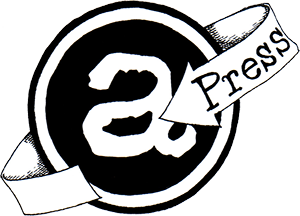[…]
by ava hofmann
Preorder Available 10.01.21
At once a modern grimoire, a transition record, and a meditation on the encounter with the archive, […] employs visual techniques to reexamine that which is missing. Reimagining Old English charms in a willfully anachronistic, willful context, […] places the past and present into a conflicted conversation which finds synthesis in poems that combine delicately crafted verse forms and wildly experimental visual poetry. […] asks you to read what has not been written, and to rescue the things that have been lost.Advance Praise
[…] is a manual, diary, song cycle, catechism, puzzle, concrete and pattern poem, encyclopedia, Dickinsonian letter. It is a book of charms too, like the Old English metrical charms, but as we encounter them now—discontinuous, their lived-life long past. Hofmann’s poems sing the lost object in its lostness: the encountering of something handed down, irretrievable, and shot through with mourning. The “meanings are in some sense interchangeable” because they are wards, “attempts to resolve illnesses through semiotic means.” Or, put another way, the violences these charms protect against are the semiotic violences that necessitated them; they gesture, piecemeal, from out the historiography of violences they name and leave behind. Continuity is foregone; we are left with the drama of discontinuity, that comes before, determines: “a slit thru / lyric’s stolen dirt.” It’s a slit Hofmann whispers through, a half-shell. Should you listen, it resonates. So put it to your ear. Behold the headphones of the world.—Jos Charles, author of Safe Space and Feeld
Imagine what might happen if Herman Melville’s sub-sub librarian collaborated with Gayatri Chakravorty Spivak’s “Subaltern” on a book of poems: Can the “deaccessioned” speak? Working to write herself back into the silences of what we call history—where partial accounts roil “transient” and “durable”—Ava Hofmann has made an essential intervention into our understanding of the Archive’s function and impact.
— Laura Mullen, author of Complicated Grief and Dark Archive
[...] is the kind of book that you flip through excitedly every time you pick it up, the kind you puzzle at alone, hooked on teasing out what it has for you, the kind you find yourself pulling off the shelf to show to visitors because of its irresistible charm as an object that promises to contain potent secrets. Secrets that might even be your own.
In [...], ava hofmann has mercifully rescued experimental poetry from academia and dumped it squarely into the pit of the queer occult."
— Never Angeline Nørth, author of Sea-Witch and Careful Mountain
Cuts layered upon cuts, Ava Hofmann’s […] is a grimoire of charms against harm through which one topples into lacunae, finding there are more gaps teeming with poetry and refusal. Where the body is a politics in which “love and hate’s all mixed inside”: “who cares about my genitals anyway?”—spells both exhausted dismissal and pointed interrogative. “Strong-in-counsel,” curious, and wondrous, Hofmann’s poems are resistance against evil-eyed translation and transaction, hexful inscriptions, and graphical, magical feats.
—Douglas Kearney, author of Buck Studies and Sho


